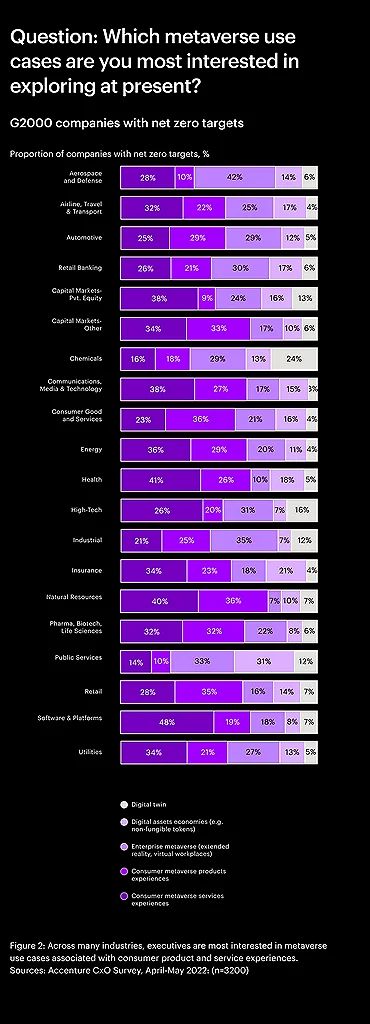The Metaverse Revolution: Exploring the Next Frontier of Digital Existence
The Metaverse Revolution: Exploring the Next Frontier of Digital Existence
The metaverse is a loosely defined term referring to virtual worlds in which users represented by avatars interact,[1] usually in 3D and usually focused on social and economic connection.[2][3][4][5]
The term metaverse originated in the 1992 science fiction novel Snow Crash as a portmanteau of "meta" and "universe".[6][7] In Snow Crash, the metaverse is envisioned as a hypothetical iteration of the Internet as a single, universal, and immersive virtual world that is facilitated by the use of virtual reality (VR) and augmented reality (AR) headsets.[8][2]
The term "metaverse" is often linked to virtual reality technology,[9][10] and beginning in the early 2020s, with Web3.[11][12] The term has been used as a buzzword by companies[8][13] to exaggerate the development progress of various related technologies and projects for public relations purposes.[14] Information privacy, user addiction, and user safety are concerns within the metaverse, stemming from challenges facing the social media and video game industries as a whole.[8][15][16]
In recent years, the concept of the metaverse has catapulted from science fiction into the realm of tangible possibility, capturing the imagination of tech enthusiasts, entrepreneurs, and investors worldwide. With Facebook's rebranding to Meta in 2021 and the growing interest in virtual reality (VR) and augmented reality (AR) technologies, the metaverse has emerged as a hot topic, promising a digital realm where individuals can work, socialize, and play in immersive, interconnected virtual environments.
Defining the MetaverseThe term "metaverse" was coined by author Neal Stephenson in his 1992 novel "Snow Crash," describing a collective virtual shared space, created by the convergence of virtually enhanced physical reality and physically persistent virtual reality. In essence, the metaverse represents a collective virtual shared space, created by the convergence of virtually enhanced physical reality and physically persistent virtual reality.
Key Players and InitiativesMeta Platforms Inc. (formerly Facebook) has been one of the most prominent proponents of the metaverse concept. Under the leadership of CEO Mark Zuckerberg, Meta has been investing heavily in VR and AR technologies, aiming to build the infrastructure for a fully immersive digital universe. Meta's Oculus VR headsets and the Horizon platform are key components of its metaverse vision, offering users the ability to interact with others in virtual spaces and experiences.
However, Meta is not alone in its pursuit of the metaverse dream. Companies like Microsoft, with its Mixed Reality ecosystem, and Epic Games, the creator of the popular game Fortnite, are also making significant strides in developing metaverse-like experiences. Moreover, startups and smaller firms are actively exploring opportunities in areas such as virtual fashion, virtual real estate, and virtual events, signaling the growing diversity of the metaverse landscape.
Challenges and Considerations While the potential of the metaverse is undoubtedly exciting, it also raises important questions and challenges. Privacy and data security are paramount concerns, especially given the intimate nature of the experiences facilitated by VR and AR technologies. Ensuring the protection of user data and implementing robust security measures will be critical to fostering trust and adoption in the metaverse.
While the potential of the metaverse is undoubtedly exciting, it also raises important questions and challenges. Privacy and data security are paramount concerns, especially given the intimate nature of the experiences facilitated by VR and AR technologies. Ensuring the protection of user data and implementing robust security measures will be critical to fostering trust and adoption in the metaverse.
Moreover, there are broader societal implications to consider, including the impact on physical communities and the potential exacerbation of existing inequalities. As more aspects of life move into the digital realm, questions arise regarding access and inclusivity. Who will have access to the metaverse, and who will be left behind? These are complex issues that will require careful consideration and collaboration across various stakeholders.
The Future of the Metaverse
Despite these challenges, the momentum behind the metaverse continues to build, fueled by rapid advancements in technology and shifting societal norms. As VR and AR technologies become more accessible and sophisticated, the possibilities for the metaverse are seemingly limitless. From virtual classrooms and remote workspaces to immersive entertainment and cultural experiences, the metaverse has the potential to reshape how we interact with the digital world and each other.
In the coming years, we can expect to see further investments, innovations, and collaborations aimed at realizing the full potential of the metaverse. While the road ahead may be fraught with challenges, the promise of a fully immersive, interconnected digital universe is too tantalizing to ignore. The metaverse represents the next frontier of human experience, inviting us to reimagine what is possible in the digital age.
References
- ^ RITTERBUSCH, GEORG DAVID; TEICHMANN, AND MALTE ROLF (February 9, 2023). "Defining the Metaverse: A Systematic Literature Review". IEEE Access. 11: 12368–12377. Bibcode:2023IEEEA..1112368R. doi:10.1109/ACCESS.2023.3241809.
- ^ Jump up to:
- a b c Newton, Casey (July 22, 2021). "Mark Zuckerberg is betting Facebook's future on the metaverse". The Verge. Archived from the original on October 25, 2021. Retrieved October 25, 2021.
- ^ Jump up to:
- a b Ritterbusch, Georg David; Teichmann, Malte Rolf (2023). "Defining the Metaverse: A Systematic Literature Review". IEEE Access. 11: 12368–12377. Bibcode:2023IEEEA..1112368R. doi:10.1109/ACCESS.2023.3241809. ISSN 2169-3536. S2CID 256562095.





































